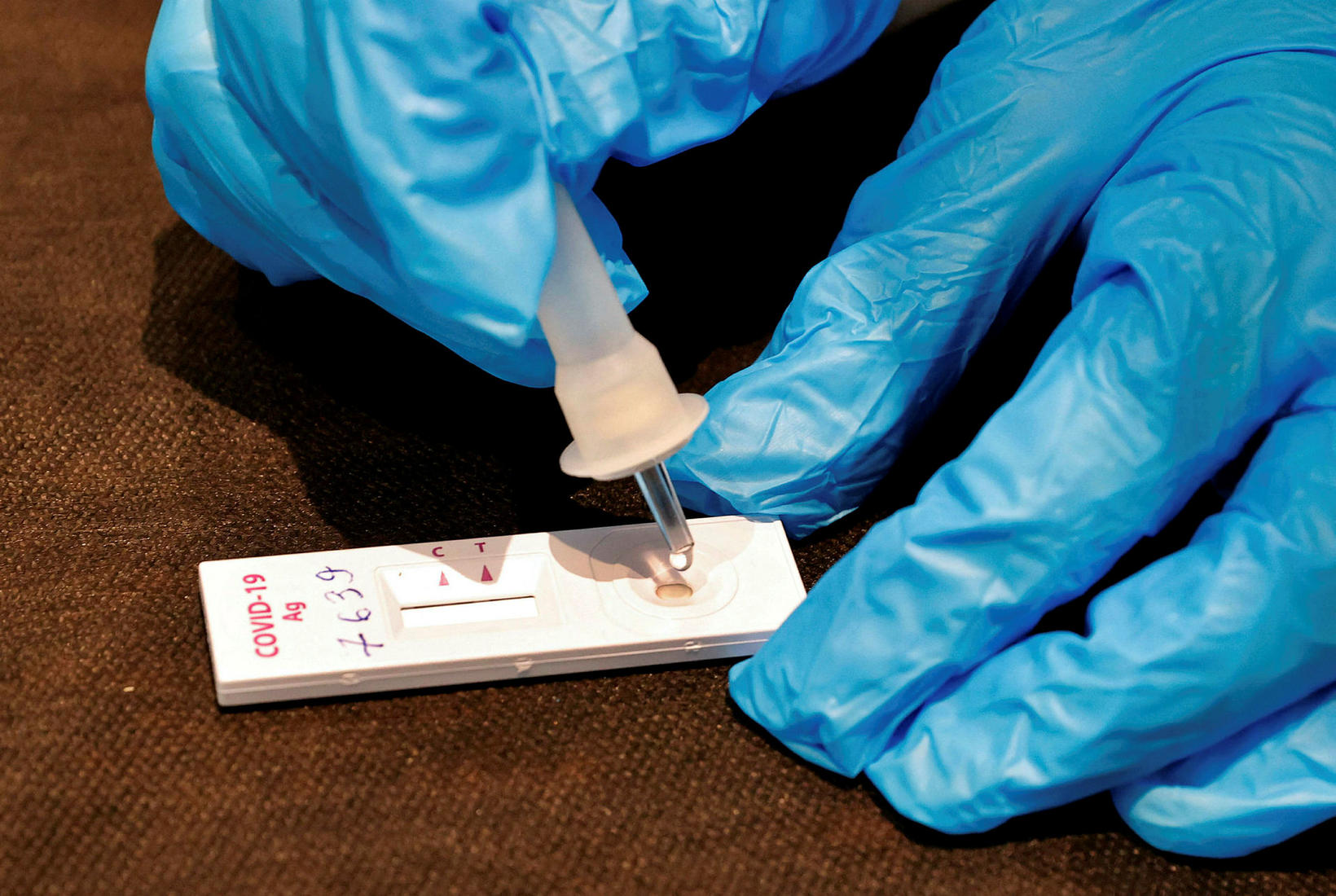Could terminate work contract of a nurse who denied taking rapid Covid tests
Dómstóllinn kemst að þeirri niðurstöðu að brot hjúkrunarfræðingsins á hlýðniskyldu í umrætt sinn teljist veruleg vanefnd á ráðningarsamningi aðila sem veitti fyrirtækinu heimild til riftunar hans. Samsett mynd
The Reykjavík District Court has found that Klíníkin, a private healthcare company, was allowed to terminate a nurse’s employment contract as it would be considered a significant failure on its part to refuse to comply with an order to take a Covid-19 rapid test at the beginning of the work day.
The company was also cleared of a misconduct claim for termination of the employment contract.
The District Court’s judgment was handed down on February 20th but was published yesterday.
The case involved the nurse demanding that the clinic be sentenced to pay her 5,174,775 ISK plus late fees. The clinic mainly demanded an acquittal, but in secondly that the claim would be reduced.
Controversy over whether orders were followed
In the court documents it is reported that the dispute centers around whether the nurse disobeyed company orders to undergo a rapid test before coming to work and whether she was required to obey such orders or consequently be subject to termination of the employment contract. The woman based her position on the fact that her refusal to be vaccinated for Covid-19 had been a reason for termination by the company, but the documents find this not to be the reason for her termination.
The district court judge says that employees' obedience to the employer's legal order is one of the primary duties of employees in an employment relationship. It has been considered that an employee must submit to the mastery of his employer, as the order given does not constitute illegality, a violation of a collective bargaining agreement or outside the employee's scope of work.
“All reasonable and usual employer directives to perform and execute the work procedures must be obeyed by the employee and risk being dismissed or otherwise. To be eligible for termination of the employment contract as a result of a breach of a duty to obey or refusal by the employee to obey a directive, if the employee’s breach of the duty to obey becomes a significant factor in the management of the employer in question, such that the employee’s refusal to obey is considered a serious failure,” the judgment reads.
Obviously, obedience is considered to be an important part of running a business.
An employment contract of employment permitted the woman to be employed as a registered surgeon nurse to perform the tasks of the operating room nurse in the company. Her daily duties included operating the room during surgeries, preparing the instruments for surgery, preparing the operating room, and treating the patients undergoing surgery, including the awakening of patients after surgical anaesthesia.
"By its very nature, the work of healthcare professionals in surgery requires that a significant degree of care be exercised with respect to general quarantine and infection prevention and that obedience obligations are evidently to be regarded as critical to the operation of the policy. During the Covid-19 outbreak, such functions were accompanied by additional duties of staff to take care of the covid-19 infection risk and to carry out infection prevention activities with great seriousness and diligence," the statement reads.
Orders for rapid tests are lawful and given on a factual basis
The judge also agrees that the company’s instructions on personnel rapid tests were lawful and given on a factual basis for the legitimate purpose of protecting patients, workers and the company in times of the epidemic. Furthermore, it says that, when the nature of the operations is considered specifically, the clinician must believe that the instructions were a critical element in keeping patients safe and therefore also the staff in mind. In this respect, it is evident that patients who accepted the healthcare of the company at the time put themselves at risk of infection by undergoing surgical procedures and thus were in a very vulnerable situation when they applied to the healthcare company.
“It was thus necessary to pay particular attention to all biosecurity measures in such operations, including the use of rapid tests. It was reasonable to the minimum requirement that the staff present were operating and attending to the care of patients before and after surgery, including the surgical nurses, comply with the quarantine orders and to take the covid-19 rapid test at the beginning of the day. It will not be assumed that such orders were burdensome to the plaintiff at all. The plaintiff as a qualified nurse should be aware of the importance of quarantine and infection control during surgery."
The Court finds that the breach of the duty of obedience by the nurse during the time in question constitutes a serious breach of the employment contract of a person who authorised the undertaking to terminate the contract.
Plaintiff made to pay the legal fees
“The defendant’s professional infringement in question is considered particularly reprehensible by reference to the nature of the profession the plaintiff was engaged in as a surgical nurse and the delicate condition of the patients she had in the course of her work. The defendant’s orders were thus a critical part of his or her activities and vital to the safety of patients and staff in times of the epidemic. With reference to what has already been revealed, it is not accepted that the plaintiff has shown that in terminating the contract of employment, has incurred a misdemeanor injury,” the Reykjavík District Court judgment states.
The woman was then sentenced to pay the company Klíníkin 1.2 million ISK in legal costs.





/frimg/1/53/30/1533092.jpg)




